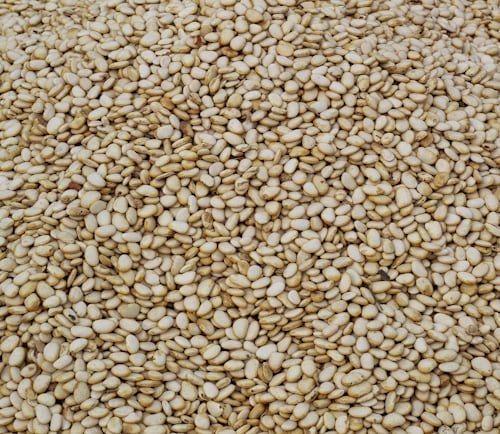Food is not only essential for the human body, but it is also a common and normal phenomenon for every human. Everyone eats, but not everyone knows what to eat, when to eat, how to eat or why to eat certain foods. Food consumed at the right time and in the right proportion has accounted for healthy living. Appropriate knowledge of food and its nutrients goes a long way in maintaining sound health and eliminating minor illnesses by strengthening the immune system and helping it fight off infections and diseases.
WHY WE EAT


It may be absurd to say that an individual doesn’t know why he/she eats. It is very possible, and it happens a lot of times that you don’t know what to eat; I mean it is a common experience among many individuals.
What could be the possible reason why we eat? We eat because we are hungry. We eat for energy. Many times the decision to eat is not premeditated nor is it because of an external influence.
No doubt food brings pleasure. Imagine attending an occasion no matter how brief it might be, food being served gives the event a different feeling. In Nigeria, there are common slangs used whenever people are invited for an occasion; rice and stew very plenty, Item 7 is on the agenda. It means there is food to be eaten lots of it. Of course, even though the invitees may not be hungry or very hungry at the event, they eat for the fun of it.
Food is also for celebration, where there is food there is merriment, joy and happiness, people celebrating eat not to satisfy hunger.
Let us explore briefly specific reasons why we eat aside from eating to satisfy hunger.
For Peak Performance /Energy:
There is a common saying in Nigeria; a hungry man is an angry man. Food can be an important element in helping us process our emotions and harness the power of energy for our physical well-being. Consuming healthy foods can boost how you feel on the inside and create a positive mood on the outside. Eating (especially healthy) provides for energy to help you do the things you love doing most (energy for productivity
For Growth & Function
What we eat must help us regulate and maintain our bodily functions. We carefully plan what we eat for different stages of growth to ensure the proper development and function of the body. Eating helps our organs and systems to be functional. A good respiratory system stems from eating good food, the sight organ is very functional when we eat what is necessary. We must continue to think and continue with good eating habits as we grow otherwise our bodies will grow old and our systems will be less functional resulting in living shorter or unhealthy lives.
EAT HEALTHY
Healthy eating means eating a wide variety of foods in the right proportions and consuming the right amount of food and drink to achieve and maintain a healthy body. weight Following a healthy diet has many benefits, including building strong bones, protecting the heart, preventing disease, and boosting mood.
WHY EAT HEALTHY

Always focus on quality over quantity as the quality of your ingredients can make a big difference, rather than adding exotic ingredients or expensive supplements. A better way is a natural and balanced diet. Focus on filling your fridge with natural and fresh food and eat three balanced meals every day – a bit of protein, some healthy fat and some fresh carbohydrate ideally in the shape of vegetables and fruit and you can be quite sure to fill your body with what it needs.
Reduced cancer risk
A person may eat foods that contain antioxidants to help reduce their risk of developing cancer by protecting their cells from damage. The presence of free radicals in the body increases the risk of cancer, but antioxidants help remove them to lower the likelihood of this disease. Many phytochemicals found in fruits, vegetables, nuts, and legumes act as antioxidants, including beta carotene, lycopene, and vitamins A, C, and E.
Foods high in antioxidants include:
berries, such as blueberries and raspberries, dark, leafy greens, pumpkin and carrots, nuts and seeds.
Improved Memory
A healthful diet may help maintain cognition and brain health. However, further conclusive research is necessary. A 2015 study identified nutrients and foods that protect against cognitive decline and dementia. The researchers found the following to be beneficial: vitamin D, C, and E, omega-3 fatty acids, flavonoids and polyphenols, fish
Among other diets, the Mediterranean diet incorporates many of these nutrients.
Strong bones and teeth: A diet with adequate calcium and magnesium is important for strong bones and teeth. Keeping the bones healthy can minimize the risk of bone issues later in life, such as osteoporosis.
The following foods are rich in calcium Trusted Source: dairy products, kale, broccoli, and canned fish with bones. Food manufacturers often fortify cereals, tofu, and plant-based milk with calcium. Magnesium is abundant in many foods, and some of the best sources include Trusted Sources: leafy green vegetables, nuts, seeds, and whole grains.
HEALTHY EATING TIPS
- Vegetables are full of many of the nutrients we need to maintain good health and support immunity, such as vitamins and minerals
- Base meals around high-fibre foods: a fiber-rich diet can reduce your risk of high cholesterol, hypertension, type 2 diabetes and heart disease. Choose wholegrain or wholemeal versions of pasta, rice, and bread, which contain more fibre, vitamins and minerals than the white versions
- Eat a portion of oily fish a week: oily fish such as salmon and trout is full of omega-3 fatty acids, which are great for heart health (lowering your risk of heart disease)
- Include dairy or dairy alternatives in your diet: dairy products such as milk, yogurt and cheese are rich in calcium, which helps keep your bones and teeth strong (and can protect you from osteoporosis as you get older). Fortified dairy alternatives like oat milk or soy products can also provide this, along with various other vitamins and minerals.
- Eat plenty of legumes: beans, lentils and peas are all high in protein and fiber while also being low in fat — so they’re a great way to bulk out meals.
- Eat less red meat: while red meat is a good source of protein, too much red meat (such as beef, pork or lamb) in your diet can increase your risk of high cholesterol and heart disease. Try to limit or avoid processed meats such as sausages and burgers, which are high in saturated fat.
- Limit sugary foods and drinks: these can increase obesity and cause tooth decay. Avoid sugary snacks such as cakes, chocolate and biscuits, and choose fruit.

We believe that every child deserves access to quality healthcare, regardless of their background or financial situation; our mission is to improve their health and well-being by providing free surgeries to those who need them most but cannot afford them.

